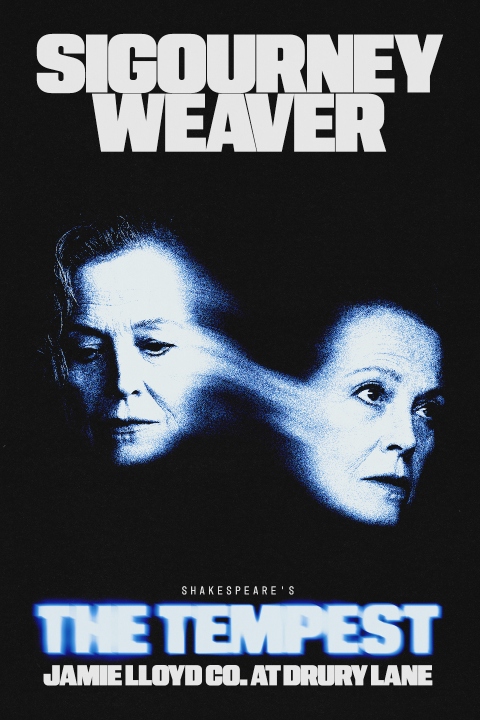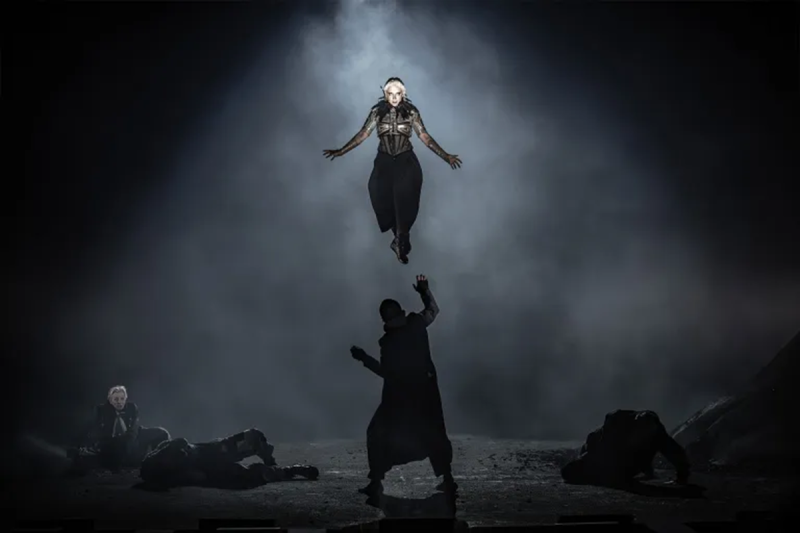Review: THE TEMPEST, Theatre Royal Drury Lane
Sigourney Weaver makes her West End debut
 |
|

A night as achingly monotone as it is aggressively monochrome? This is the stuff that nightmares are made of.
I’ll level with you. I can’t imagine what could possibly draw Jamie Lloyd, a director known for his searing austere black and white aesthetic and radical reinventions, to a play so tantalisingly mercurial as The Tempest. Even the strongest directors can struggle to tame its structural unevenness and wrangle its discordant subplots.
Neither can I fathom what passed the creative team's heads when Sigourney Weaver hobbled out the casting room. The three times Oscar-nominated Hollywood veteran mumbles through Prospero's lyricism with barely a glint of an attempt to grasp the coiled intricacies of the language, and dare I even write, fudging a line or two. Gazing out into the void above the audience, muffling into a microphone with a robotic drone; if ever you needed evidence to the hypothesis that stage acting is a different artistic kettle of fish to screen acting then here you go. She feels utterly alien treading the boards.
Lloyd’s chuck-it-at-the-wall-and-see-what-works vision doesn’t help. The auteur’s trademark visual austerity strips the island of specifics, with piles of black ash flecked by glaring crepuscular light forming a planetary hellscape. If you squint, it could almost be a stage version of Dune with its slightly campy sci-fi costumes but especially when a pale-faced Caliban pops his bald head up from the gravel like a sandworm.
But even so, Prospero is the theatrical lynchpin; without him (or her in this production) to clamp it together The Tempest crumbles into a series of whiplash inducing tonal shifts. Matthew Horne’s Trinculo stumbles in lost on his way to a neighbouring West End panto, brimming with cheeky chappie chutzpah. Miranda and Ferdinand’s relationship unfurls with the campiness of a Disney Channel sitcom only for a 180 degree mood shift, portentous glimpses of the island’s magical forces rumble ex machina courtesy of Ben and Max Ringham’s sonorous score.
Mason Alexander Park’s Ariel is the only saving grace, a fine-tuned balance of nefariousness and enchanted whimsy, floating down from the rafters, a cross between Pinhead from Hellraiser and a hawk, only to shoot eerie glares at their human counterparts, slowly turning up the heat on the fairy’s bubbling indignation at executing Prospero’s dirty work. Ariel’s liberation is more melancholic release than celebratory triumph; perhaps the only moment of genuine tenderness and a fragmentary glimpse of the play's themes of revenge and redemption. But it’s not enough to save this Tempest.
I suppose I must applaud Lloyd for pushing the boat out. But this production is lost at sea.
The Tempest plays at Theatre Royal Drury Lane until 1 February 2025
Photo Credits: Marc Brenner
Reader Reviews

Videos



